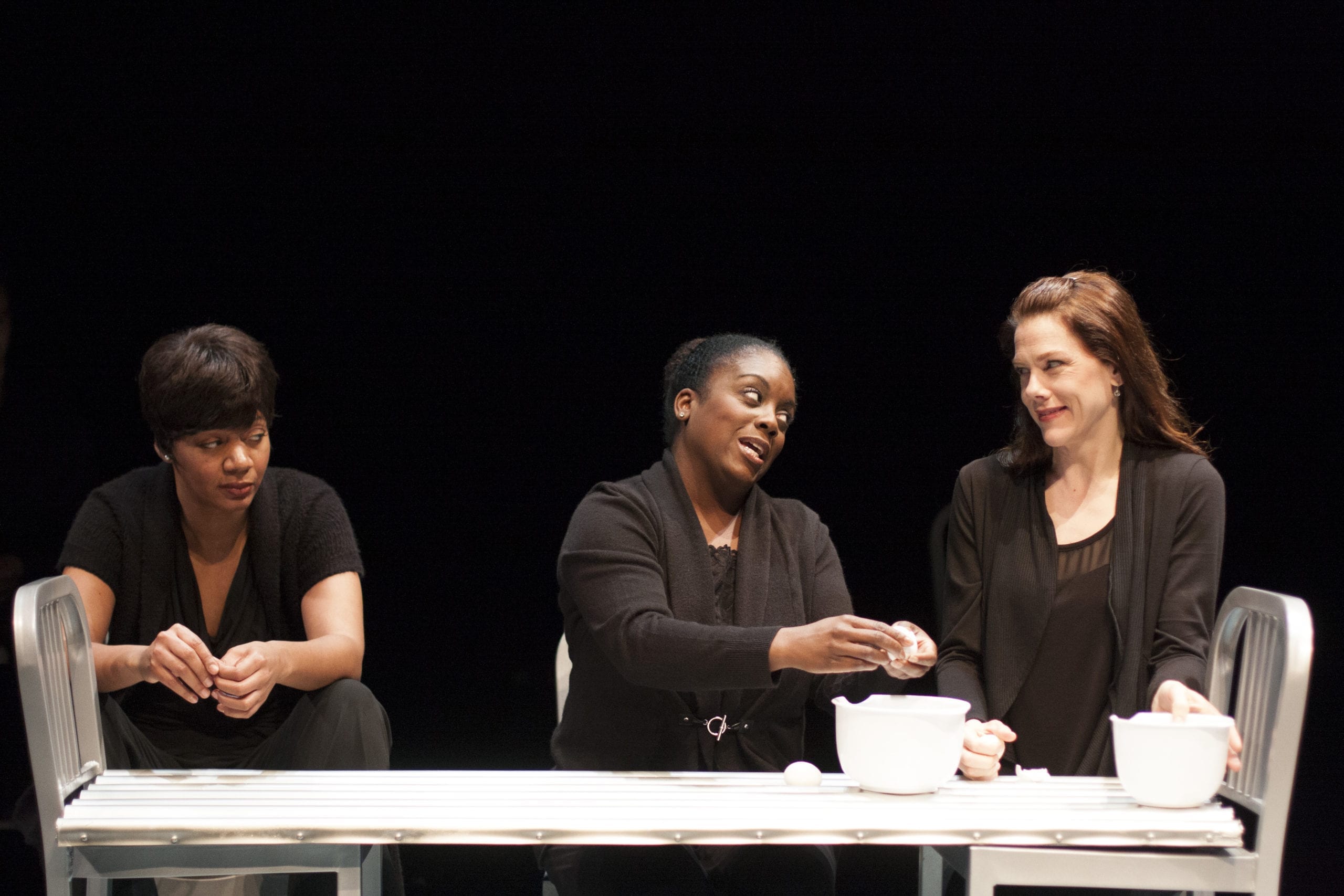 SALT LAKE CITY — Plan-B Theatre Company’s production of MAMA directed by Jerry Rapier asks the question “How do you define a mother?” Of course there is no one correct answer to this question. The playwright Carleton Bluford is interested in exploring the complexities of motherhood. The stories that are told in MAMA range from depictions of mothers who sacrifice for their children, to mothers who need to be taken care of by their children and several others in between. The play is a sort of collage of stories, quotes, and vignettes, exploring what it means to be and have a mother.
SALT LAKE CITY — Plan-B Theatre Company’s production of MAMA directed by Jerry Rapier asks the question “How do you define a mother?” Of course there is no one correct answer to this question. The playwright Carleton Bluford is interested in exploring the complexities of motherhood. The stories that are told in MAMA range from depictions of mothers who sacrifice for their children, to mothers who need to be taken care of by their children and several others in between. The play is a sort of collage of stories, quotes, and vignettes, exploring what it means to be and have a mother.
The play takes place in a sparse space on stage, designed by Randy Rasmussen. The only set is a few chairs, and a screen. The four actors are dressed all in black, and between the four of them they transition between several different story-lines, share quotes about mothers from great thinkers, as well as personal stories about mothers gathered from Facebook.
Simplicity in stage and costume design is necessary because there are so many different stories being told on stage, but at times the play felt unfocused. The content seemed to be sprawled out instead of in a deliberate order, and this made it difficult to always know how the action fit in with the rest of the play.
Five main story lines serve as the only through line of the show. Some of these scenes work better than others, the weakest being the story about a slave family, because of the somewhat confusing action and dialogue and differing time period. The relationship between the mother and daughter wasn’t front and center, like the other contemporary story-lines, so it felt out of step with the rest of the production.

The standout performance was Dee-Dee Darby-Duffin who was consistently the most interesting performer to watch. Her delivery never felt like she was speaking lines that had been written down and memorized. Darby-Duffin was equally strong as she transitioned between the several roles she had to play, but my favorite was her role as a mother who has to sacrifice her personal life in order to help and support her son. She elegantly portrays the balance between regret for what she has to give up as a mother, but also love for her son, and a willingness to give up whatever needs to be sacrificed.
Elizabeth Summerhays also had a strong scene as a new mother visiting her in-laws for the first time over Thanksgiving. It was a pleasure to watch her move from meek and respectful to fierce and strong in order to defend herself and her daughter.

Latoya Rhodes and William Cooper Howell were at their best playing a sister and brother who are trying to take care of their troubled mother. They play beautifully with the tension between being frustrated with each other, and loving their family fiercely. In this story the mother has gone from taking care of her children, to needing to be taken care of herself. It adds more complexity to the portrait of mothers and lifts the play out of sentimentality.
MAMA is a flawed play, but it’s also deeply sweet, just like most of the mothers that I know. To get too hung up on the technical aspects is to miss the point. Appreciating and celebrating mothers, not as angels, but as the complex and flawed human beings that they are is always a noble endeavor, and despite it’s weaknesses, MAMA is still emotional and beautiful. You might just feel like you should give your mom a call after you see it.
[box type=”shadow”]MAMA plays thru February 22 in the Studio Theatre at the Rose Wagner Performing Arts Center (138 W 300 S) in downtown Salt Lake City. Tickets are $20 and are available for purchase at ArtTix.org. For more information, visit PlanBTheatre.org[/box]

